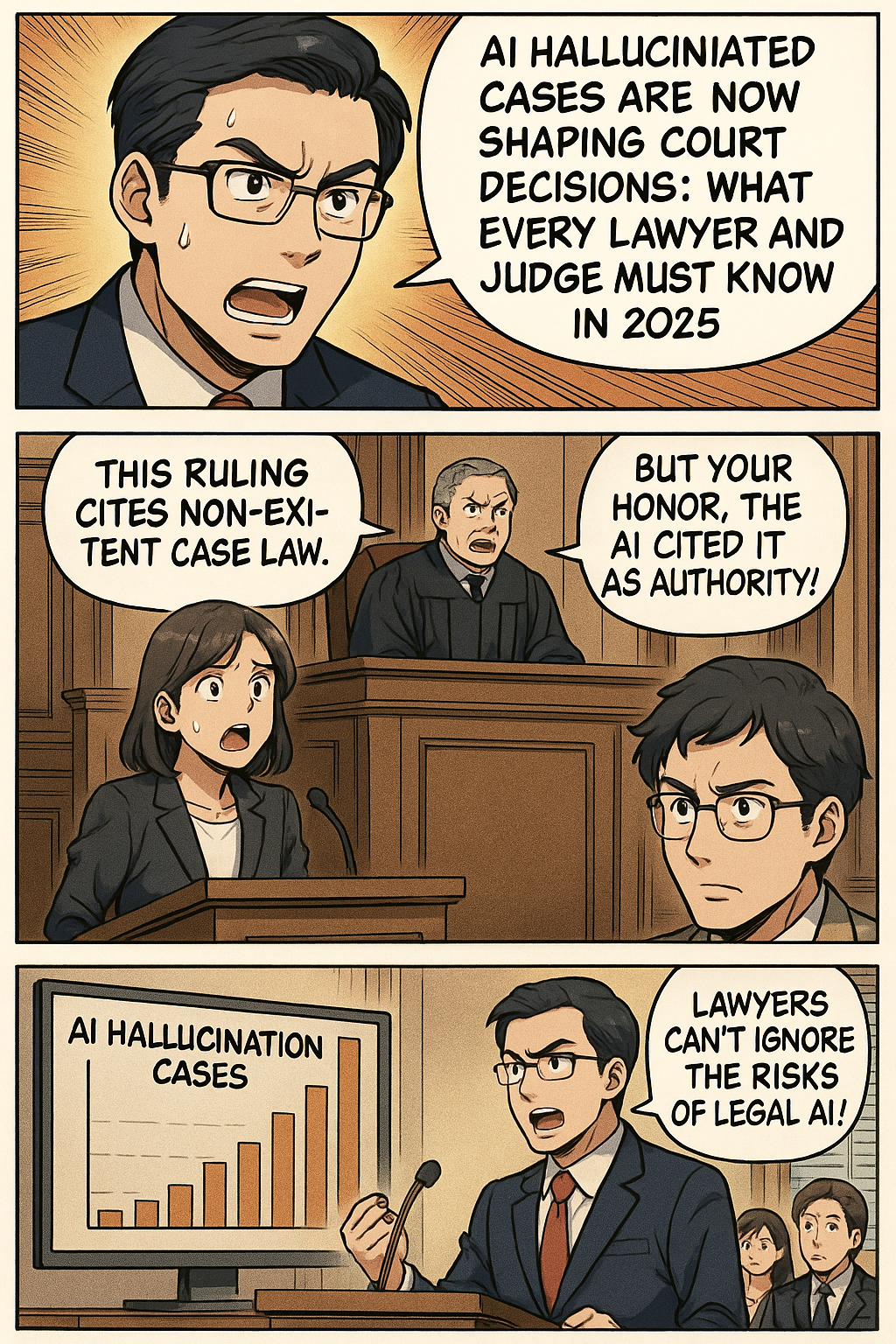AI legal hallucinations database
Damien Charlotin, a research fellow at the HEC Paris business school, maintains a database of court filings that include hallucinated citations and legal arguments. As of this writing, it includes 118 cases and links to the actual filings in many of them.

One case in the database is Shahid v. Esaam, which The Tech-Savvy Lawyer calls “a landmark ruling” that “should serve as a wake-up call to every member of the legal profession”:
The Shahid v. Esaam decision represents the first documented case where a trial court’s order was based entirely on non-existent case law, likely generated by AI tools. The Georgia Court of Appeals found that the trial court’s order denying a motion to reopen a divorce case relied upon two fictitious cases, and the appellee’s brief contained an astounding 11 bogus citations out of 15 total citations. The court imposed a $2,500 penalty on attorney Diana Lynch—the maximum allowed under GA Court of Appeals Rule 7(e)(2)—and vacated the trial court’s order entirely.
What makes this case particularly alarming is not just the volume of fabricated citations, but the fact that these AI-generated hallucinations were adopted wholesale without verification by the trial court. The court specifically referenced Chief Justice John Roberts’ 2023 warning that “any use of AI requires caution and humility”.